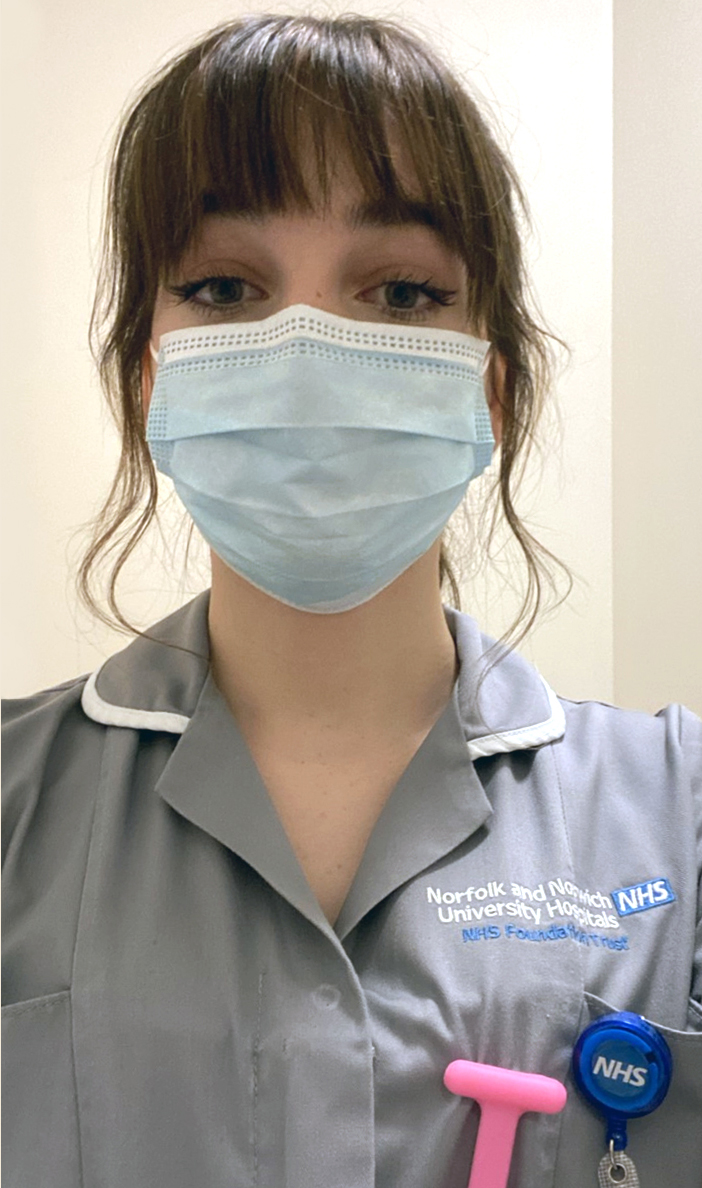What inspired you to pursue a career in Health and Social Care?
I have always wanted to focus on a career that allows me to help and care for others. I have a passion for making people feel better; physically, mentally and emotionally. The position of a Health Care Assistant allows me to do all these things, ensuring my patients are comfortable and at peace in their most vulnerable moments.
I have unfortunately lost loved ones due to COVID-19, this has made me even more determined to help those who are infected, vulnerable and alone. I want to do everything I can in my power to improve their quality of life and be there for those who are alone in such difficult times.
A close friend of mine said “this is a sort of experience that only happens once, if not ever, in a lifetime. If you can get through this whilst still training, you’ll be a smashing nurse”.
What were your biggest challenges during the pandemic and how did you overcome them?
The biggest challenge was encountering unconfirmed cases. This was scary as we still had to offer care to these patients, such as making their bed and taking observations. It was important that we also protected vulnerable members of staff, so I agreed to enter the patients’ room with full PPE. Despite being fearful, I am comforted by the fact I took part in the caring of someone and made them feel better.
How did your BTEC qualification help prepare you for this current situation?
The units in BTEC Health and Social Care are very realistic and I am able to apply this knowledge to the current situation. I completed the Promoting Public Health unit in December 2019, which covers pandemics and explores how governments aim to control a global disease outbreak. I have been able to apply real life scenarios into my BTEC assignments. Throughout the pandemic, I have been on the frontline on the respiratory ward, seeing firsthand how hospital procedures were impacted by COVID-19.
I also had to complete a Care Certificate as part of my Health Care Assistant role, this included legislation, procedures and safeguarding, all covered on my BTEC course.
In addition, the work experience placements on the BTEC really helped me to develop the skills taught in class and apply them to real life scenarios. The patients I met on my placement varied, from those with dementia to young children. This really benefited me in my current role as I now meet all kinds of patients. The work placements really helped me be more confident and flexible.
What are your future career plans?
I plan to do a Training Nursing Associate Apprenticeship, followed by a nursing degree, which will make me a fully registered nurse. Despite this being a longer route into nursing, working and studying simultaneously will make me more confident for my future career.
